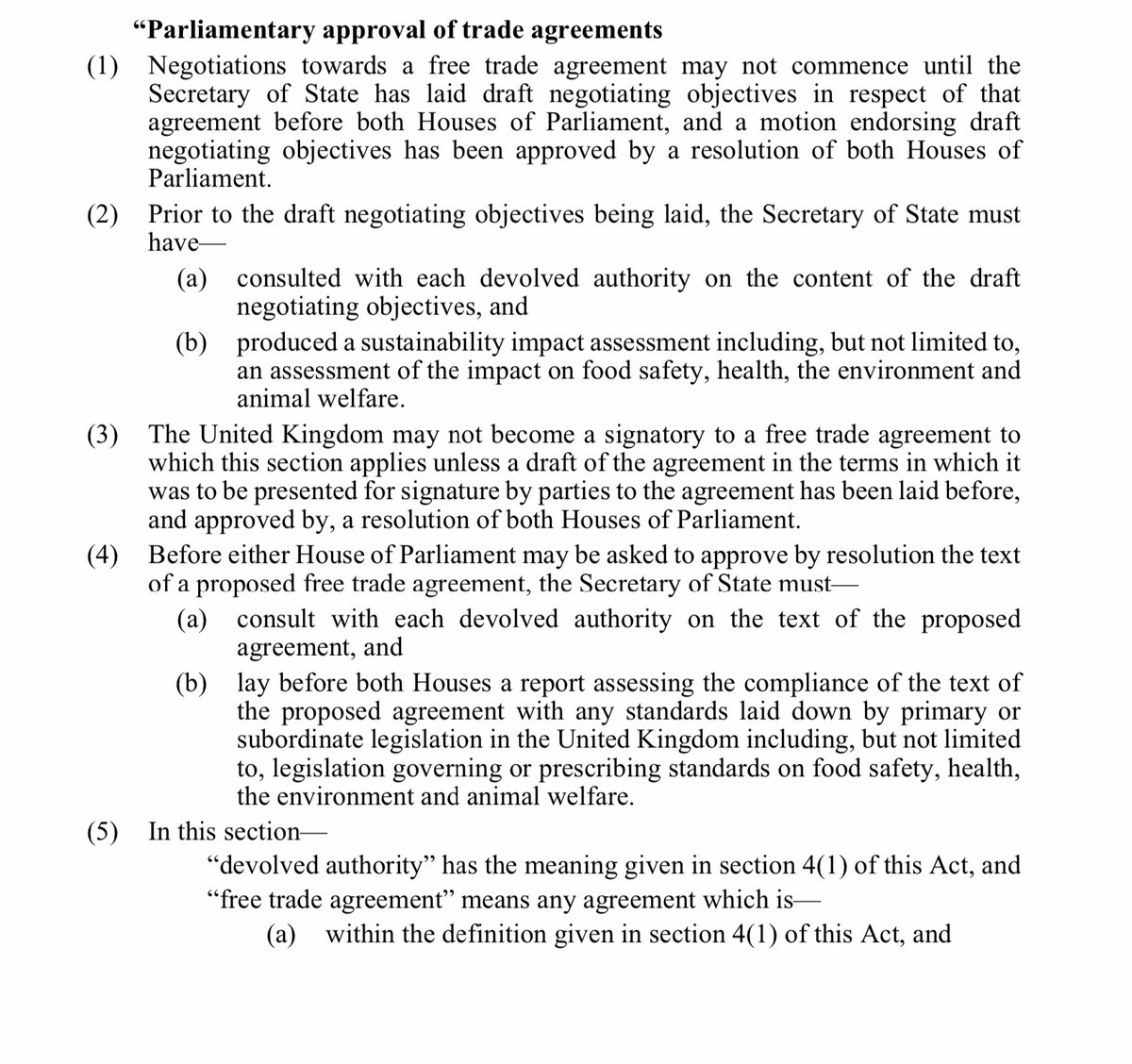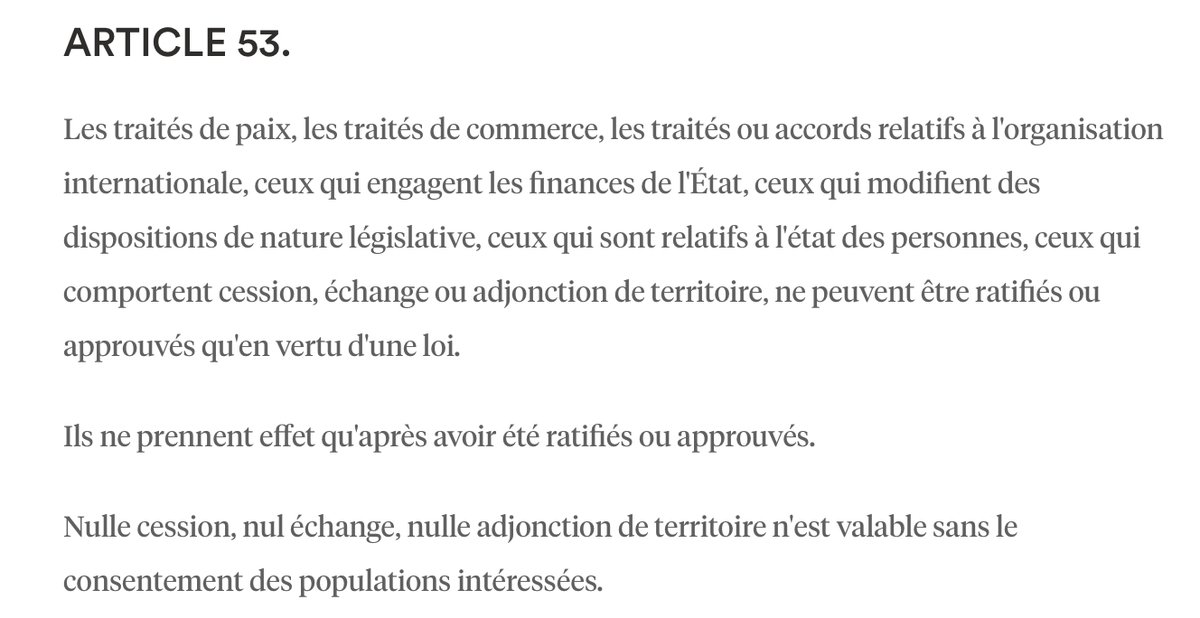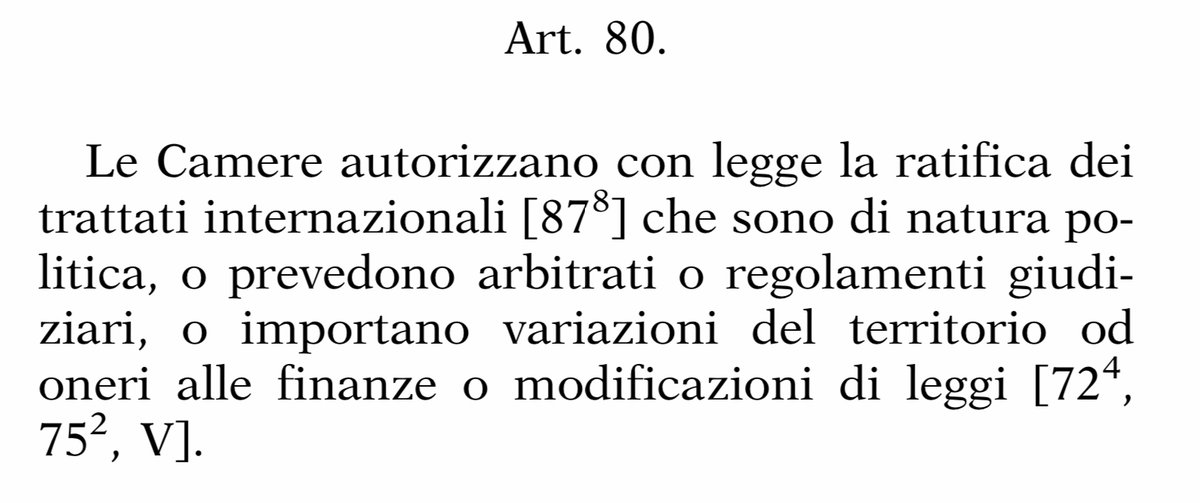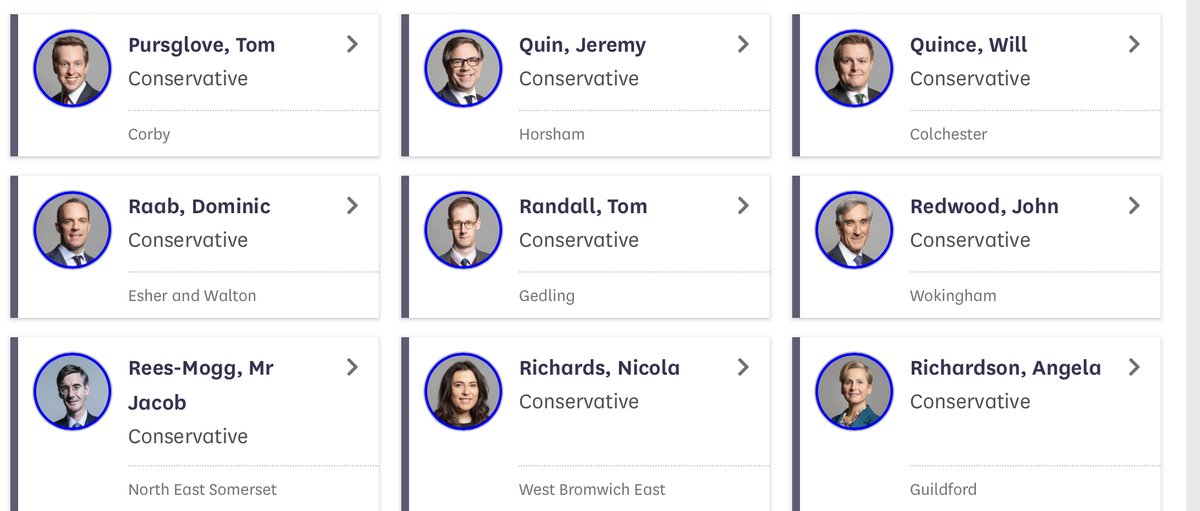MPs vote that they do not want to have power regarding free trade agreements or: how Westminster Parliaments, once a model, are falling behind. A postscript on the @JDjanogly amendment (thread)
In the UK system it is the executive that negotiates and ratifies treaties. Parliament’s role is limited. It scrutinises, but it does not get a vote. It can delay. But that’s about it. In practice, MPs don’t do it, because it wastes opposition time. https://uktradeforum.net/2017/11/21/parliament-and-trade-agreements-its-about-democracy/">https://uktradeforum.net/2017/11/2...
Parliament does get a vote on implementing legislation. But that’s not the same. What if MPs thought they had done enough to implement, but dispute settlement proved them wrong, for example? https://constitution-unit.com/2019/03/14/parliament-and-treaty-making-from-crag-to-a-meaningful-vote/">https://constitution-unit.com/2019/03/1...
And international treaties have changed. While in the past there were treaties here and there on single questions, now there are treaties on many things - and trade treaties impact policies in several fields.
Let’s change our patent laws? We can’t - trade treaties. What about copyright? Let’s first see whether the changes comply with trade treaties. Food standards? Don’t run afoul of trade treaties. Animal welfare? Oh that amendment might violate a trade treaty. Etc.
If you want to make sure that in drafting those treaties you get the right balance, every regional interest is properly taken into account (so you don’t sell out say farming for say financial services) there’s a natural place for that: Parliament.
Accordingly @JDjanogly took the logical step: he proposed an amendment that would have required Parliament to agree to a free trade agreement. “New clause 4”.
Here’s the full text. https://publications.parliament.uk/pa/bills/cbill/58-01/0120/amend/trade_day_rep_0717.pdf">https://publications.parliament.uk/pa/bills/...
Comparatively it has become common that Parliaments have to agree to important treaties. In the EU the EP has to agree to FTAs, in the US Congress does. Apparently in Japan Parliament also gets a vote...
Not to speak of EU Member States and parliamentary agreement to treaties. Generally their constitutions will say that some treaties (e.g. those with dispute settlement mechanisms) require parliamentary approval. Let’s go through some of them.
France. Art. 53 - peace treaties, trade treaties, treaties on international organisation or with financial impacts, those involving legislative chance and some others...
Germany Art. 59 (2). Treaties that govern the political relations of Germany or relate to matters of federal legislative powers.
Italy Art. 80. Political treaties, those that have dispute settlement or require legislative amendments and some others...
US Art. 2 sec. 2 cl. 2 of the Constitution. Always. But that doesn’t respond to the US reality, which, quite frankly, requires an article not a tweet.
Parliament, however, decided that it did not want a vote on trade agreements. 263 to 326. MPs seem to think that government does a better job balancing the interests of the country, serving their constituents and getting the right deal.
Among the No votes you will, surprisingly find John Redwood who seemed to complain via a tweet that Parliament did not have a vote on trade deals. He now voted, quite literally that Parliament should not have one. /ht @StevePeers
Now in fairness to MPs: it is, indeed, true that FTAs are harder to reach when Parliament gets a vote. Because Parliament might vote the deal down.
The question is: do we want a deal Parliament would vote down?
The question is: do we want a deal Parliament would vote down?

 Read on Twitter
Read on Twitter








